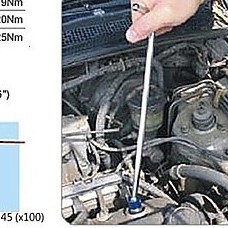Search the Community
Showing results for tags 'recycling'.
-
would you take the trouble to go drop some batteries, when you can just toss them into a waste bin ?
-
Yesterday, while listening to my favourite podcast (No Such Thing As A Fish), I learnt a shocking, incredible and downright unbelievable fact. Here’s the fact: Singapore is number one in the world in bottled water consumption and spending per capita. Here’s the kicker: It’s not even close. According to a UN study published in 2023, Singapore’s 1,129 litres and $1,348 per capita in 2021 is miles and away higher than second place Australia (504 litres and $386).The graphs illustrating this are hilarious. Singapore is so far out from all the other countries that they have to create an additional graph segment just for us. We are quite literally not even on the same scale as the rest of the world. When I first heard this fact, I literally could not believe it. How is that even remotely possible? I don’t think I buy more than one bottled water a month, and most people I know around me don’t drink bottled water on a highly regular basis. In fact, I cannot think of anyone I know that solely drinks bottled water. Think about it. 1,129 litres per capita means that an average Singaporean drinks 3.09 litres of bottled water A DAY. I don’t even think that many people drink 3.09 litres of any water a day. Which brings us to a very simple question: How is this possible? When The Straits Times reported on this in 2023, one reason provided was the relative affordability of bottled water in Singapore (true), as well as it being widely accessible (also true). However, the article also cited a report that indicated that “only 3 per cent of the 1,000 households surveyed actually consumed bottled water.” That seems inherently contradictory, and the article does little to offer any clear resolution. I’ve probably spent way too much thinking about this, but I would like to propose some possible explanations (going off the assumption that the UN think tank’s methodology is correct). To be clear, Singapore isn’t the top consumer or spender by volume. USA is the top consumer and spender (61,418 million litres and 63,844 million USD respectively). Singapore is 12th in terms of total volume consumed (approx. under 6,000 million litres), and sixth in terms of bottled water sales (approx. 7.4 million USD). My guess is that the calculations are based on a total per country calculation of consumption and spending, divided by population. That’s how ‘per capita’ works, essentially. Clearly, one important thing to point out is our population size. Because we are significantly smaller than countries like USA/China/Indonesia (the top three in both categories), once you calculate per capita, our numbers shoot up. That’s unfortunately a mathematical reality. But, there is still the obvious question of where exactly that spending and consumption is happening. I don’t think it’s the everyday you and me (how much bottled water are you consuming daily???). I believe the answer is… corporate. Workplaces, offices, as well as events. Think about it. Many workplaces and offices have bottled water in large quantities – both in the typical 500ml bottles, as well as those big 19L bottles for water coolers. Our previous office space used those very same water coolers (we’ve transitioned now to a filter system), while boxes of 500ml bottles sit in the storeroom for when guests visit. And Singapore have SO MANY OFFICES. Not just in the CBD, but everywhere around the island. And this isn’t limited to offices. Retail and hospitality has to also be taken into account. It is typically considered courtesy to offer a guest/customer water to drink, right? I am surely guilty of this when walking into car showrooms when collecting test cars. And, I think another major element of consumption is during events. Singapore is purposely big on events – MICE events, as well as all kinds of activities otherwise (think F1, National Day, marathons, whatever other events you can think of). And of course, these events are not just catered to locals, but to international guests as well. At any of these events, you can easily expect not just cartons, but pellets and even full containers of bottled water. And of course, tourism. Just as you would likely buy water instead of carrying a water bottle around when on holiday, the same is likely true for tourists coming in to Singapore. There’s just a lot of them, and not that many of us locals to mathematically balance the scales, so to speak. Once you take all of that into account, then the numbers start to make a bit more sense. While the average Singaporean probably does not buy bottled water at their local kopitiam every day, there are still many instances of us consuming bottled water, at last on a national level. And while we may not be individually responsible for the spending and consumption, we cannot also ignore the reality of our collective spending and consumption on a national level. The report is more concerned about issues like clean water availability. However, the Singapore numbers reflect something else entirely - the hyper-modernity of our little city, and the hyper-consumption that follows. With our dense concentration of high-rise office buildings, the constant in and out of VIPs from all over the world, as well as the endless major events taking place all around the country, that certainly drives up bottled water demand and consumption. Our hyper-modernity makes for an environment where immediate and easy access to ‘quality water’ becomes almost fetishised, precisely because we don't have to worry about scarcity. Additionally, unlike huge countries like USA and China who may have rural areas without ready access to bottled water that effectively ‘balance’ out their statistics, we don’t have any such things. The consequent result is that the scales are tipped heavily toward consumption. There’s no ‘bell-curving’ Singapore. Factor in our low population relative to these massive countries, and those shocking per capita numbers start to make a bit more sense. Hyper-consumption, of course, leads to the inevitable matter of waste – specifically plastic pollution (another important issue highlighted within the report). While recycling certainly happens, it’s hard to negotiate the sheer scale of what we, collectively as a People, are dealing with. Here are some pertinent quotes from the report: “about 85% of all plastic bottles sold become waste” “Microplastics, of which PET makes up a part, comprise over 80% of the annual plastic pollution in the environment, around 22 million tonnes in 2019” “It is estimated that humans ingest an amount of plastic equivalent to the size of a credit card on a weekly basis” “Since the 1950s, only 6.5% of all plastics produced have been recycled and today, only 14% is recycled” And while some countries like Norway and Switzerland have plastic recycling rates over 80%, Singapore’s plastic recycling rate is… six. Not 60. 6 percent. I’m no eco-crusader. But I do think this single statistical instance of bottled water does cast a stark light on our hyper-consumption. And while you may often hear (or even make) the argument, “I’m just one person, what difference can I make?”, I think that’s almost entirely beside the point. There are certainly people out there to change the world. I am not one of them. However, I do believe that each of us individually can make an effort to change ourselves. Every little bit counts. And to be clear, I’m not for a moment saying that people should suddenly boycott bottled water, or drastically change your way of life. Rather, it’s more about being just a little bit more aware of your individual consumption patterns, and not simply and blindly accept endless convenience. Singaporeans will continue to consume bottled water, myself included. But if we can each of us just make a tiny effort to do it less, to resist that easy convenience where possible, then perhaps we as a country can move the needle ever so slightly. We love to be number one in the world. I just don't think this is one of those instances where being number one is all that good. ~ Desmond Images: Wikimedia Commons, National Environment Agency, United Nations University
- 1 comment
-
- water
- bottled water
-
(and 3 more)
Tagged with:
-
High time we recycle Even Shanghai does better. Japan is the most amazing - they wash the milk cartons then put them out.. https://www.channelnewsasia.com/news/singapore/ikea-nea-recycling-bin-free-voucher-bto-flats-11771706
-
Interesting that we give different result to Eunomia, the environmental consultancy https://www.weforum.org/agenda/2017/12/germany-recycles-more-than-any-other-country
-
Hi guys, I have a pair of used tyre. Have a puncture in one of them and had to change. For some reason, these were not "traded in". Anybody knows where I can recycle them? Thanks
-
these days the government kept urging us to recycle, reuse and reduce to help protect and save the environment. am doing my part at home cutting down on electricity and paper usage. but i have alot of those glass bottles (example coffee bottles) at home. where can i find and drop off these glasswares for recycling? seen those categorized bins at IKEA and town, but curious where can heartlanders like myself find them.
-
Dear All Kong Meng San Phor Kark See Monastery 88 Recycling in conjuction with Firefly Mission are appealing to members of public in requesting for items stipulated below for victims hit by Cyclone Nargis - Myanmar . Firefly Mission of 7 volunteers will be leaving for Myanmar on 17th May 2008 (Saturday) for relief work. We will be assisting in collecting and packing the following needed items to assist them in their Humanitarian Relief efforts. We need the following latest by 16 May 2008 for the Silk Air flight. 1) Biscuits/Can Food- immediate 3) Rice - continuous 4) medicine - immediate - preferably in commercial packing a) Paracetamol - 50 x 2,000 b) lomotil - 10 x 2000 c) Mefenamic acid - 2,000 d) Dicofenac (50mg) - 25 x 100e) Amocil - 2,000 f) Ampicillin tab - 2,000 g) Ciprobay tabb - 50 x 200 h) Oral dehydration salt - 20 x 100i) Multivit tab - 20 x 2,000 j) Chlorpheniramine tab - 10 x 2,000 k) Surgical mask - as many as possible l) Surgical gloves - as many as possible m) Anti-septic hand wash - 100 bottles n) etc etc etc (useful items) Pls put the following Items to our 88 Recycling Kiosk at Kong Meng San in the bins Labeled 'Humanitarian Relief Myanmar'. With Metta http://www.kmspks.org/community/88kiosk/index.html Om Mani padme hung
-
- Recycling
- Humanitarian
-
(and 2 more)
Tagged with:
-
Dear all MCFers, have a question regarding paper recycling. For the past 25 years, I have accumulated many textbooks, cardboards, papers and magazines. I am thinking of clearing my study room. The textbooks are already obsolete and nobody would want them. It would be a waste throwing into the rubbish dump directly. I am thinking of sending it to paper recycling companies directly. Do you know of any such companies (especially in the north, western area)? Typically what is the amount they would reimburse? Would Karang Guni collect these stuffs?
- 16 replies


.png)



